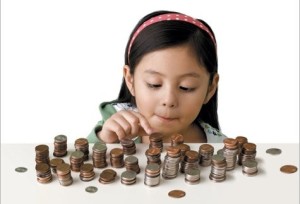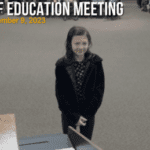Share This Article
I’m going to start with a disclaimer on this one: Personal finances are personal! Moral and legal principles prevent me from giving you specific financial advice. I can, however, refer you to a financial planner if you’re interested.
 Now that I’ve gotten that out of the way, let’s get down to business. You don’t have to be perfect to be a teacher, or a parent, or even a parent who teaches. It’s true! Ask any educator. Every instructor who’s worth their salt reflects on their lessons and constantly searches for ways to improve. Here are four ways to use your mistakes as learning opportunities:
Now that I’ve gotten that out of the way, let’s get down to business. You don’t have to be perfect to be a teacher, or a parent, or even a parent who teaches. It’s true! Ask any educator. Every instructor who’s worth their salt reflects on their lessons and constantly searches for ways to improve. Here are four ways to use your mistakes as learning opportunities:
Learn some things, then keep on learning
What makes a teacher great? They are routinely searching for new learning opportunities. You can do that, too! There are plenty of free and low-cost classes and seminars throughout the area, including our monthly Money Matters Family Nights (register here). Seeking opportunities will also provide the added benefit of showing your kids that you value education.
Plan, plan, plan
The saying goes, “The only two things you can count on in life are death and taxes.” It may be depressing, but the adage is true. We rarely, if ever, know what life holds for us. That’s why we try to plan for the worst-case scenarios with insurance, savings, and investments. Find a budgeting tool (lots of online resources) and start plugging your numbers in. Once you’ve decided on how you want to spend your money, it’s OK to follow my third tip.
Be honest
I know it feels risky to be honest with kids, but they’re smarter than we usually give them credit for. If you can objectively look at your finances and be honest with yourself, you’re doing well. If you can openly discuss some, not all, your shortfalls with your kids, however, you are a rock star. You may have been told that it’s better to learn from someone else’s mistakes than your own. Do you agree? I do.
Reflect and improve
I mentioned earlier that all good educators look back upon their experiences and try to make them better, right? You can do that, too! A lot of adults (and kids) neglect this part of the learning process because it’s hard. Try setting aside a few minutes a week to look at your purchases and determine if they were wise or not. Ask your child to do the same. It doesn’t have to be an hour-long meditative session, just some time to take stock of what you did well and what you would like to change. If you see some spending you think was silly or impulsive, set a goal to change. Be careful to not set too many goals, though, or your head will be spinning.
Scope out my video to learn more about resources that will help you get yourself on track.


